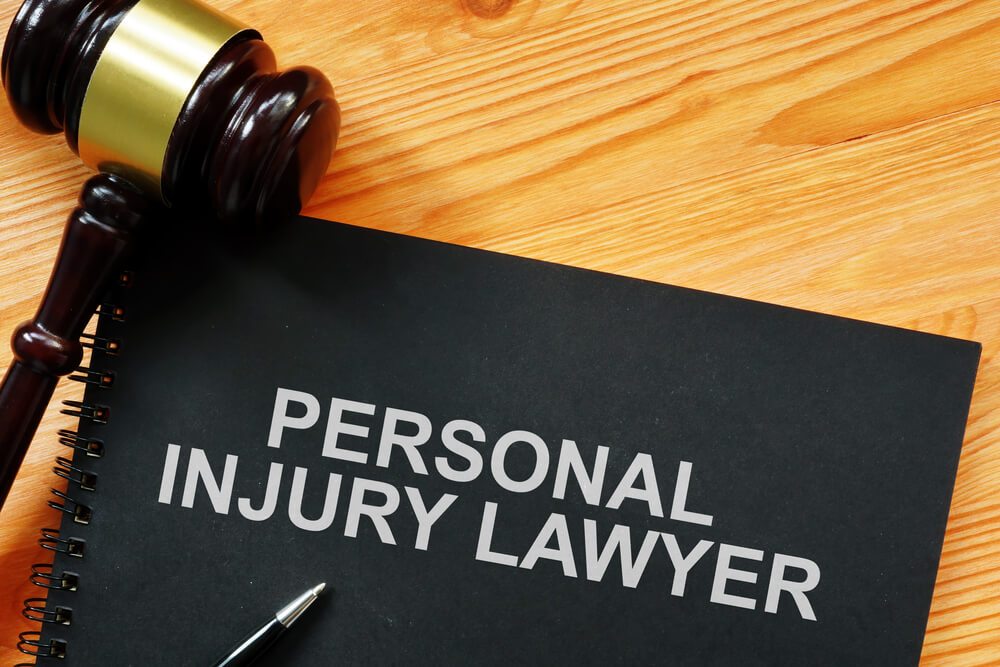Only you can decide if you need a personal injury lawyer. However, hiring one can provide many benefits. They should have enough knowledge and experience to handle all aspects of your claim while you recover from the accident and your injuries. For example, they can access evidence that may prove difficult for you to obtain, assess your past and future damages, and represent you throughout the claims process.
Retaining personal injury representation usually comes at no upfront cost, so you won’t have to finance your case and pay any court fees. Your personal injury attorney would only take payment if and when they secure a financial recovery for you.
Gathering, Analyzing, and Presenting Various Forms of Evidence

Your attorney should know what evidence they need to collect for your case.
It usually includes:
- Photos of the scene of the incident and your visible injuries
- Video Footage
- Statements from eyewitnesses
- Your medical records
- The incident or police report
- Accident reconstruction expert analysis (for traffic collisions)
- Any traffic citations (for traffic collisions)
The above list covers what virtually every personal injury case requires. However, some types of cases call for more specific documentation. For example, truck accidents are some of the most complex personal injury cases, as they typically involve more than one party. With that, you may need more evidence to support your negligence claims.
Your lawyer can contact the trucking company and request the involved truck’s maintenance records, black box data, dashboard camera footage, and relevant employee records. This evidence can prove difficult and even daunting to recover, but your lawyer can reach out and access this documentation on your behalf.
Identifying the Other Party and Proving Their Negligence
Once your attorney gathers the evidence of your incident, they must use it to prove that your case meets the negligence standard.
In an injury case, negligence includes:
- Duty of care: The other party was to act as any other reasonable person would in the same situation. For example, a driver must operate their vehicle safely under traffic law.
- Breach of duty: This party failed to live up to their duty of care through negligence. In the same example, let’s say the driver drove under the influence and sped through traffic.
- Causation: This negligence led to an accident and your injuries.
- Damages: You now face physical, emotional, and financial hardships due to this event.
The average personal injury claimant might have difficulty applying this negligence standard to their situation. However, a lawyer should know how to complete this process. After all, their client will not recover compensation unless they can prove each element of negligence existed in the case.
Assessing the Value of Your Past and Future Damages
Quantifying your damages can be the most difficult task associated with your injury case, as you must consider various aspects of your case, such as:
- The type of accident in which you were injured
- The type of injuries you suffered and their seriousness
- The details of your anticipated recovery
- Whether you can work part-time, full-time, or cannot work
- Your emotional and psychological well-being
Luckily, a personal injury attorney should have familiarity with this process and can assume this responsibility on your behalf. In these cases, the law may classify your damages as economic or non-economic.
Common Economic Damages You May Recover
Economic damages refer to tangible losses that have a fixed monetary value. Your attorney can gather your medical bills, wage statements, and receipts of purchases you’ve made related to the crash. They can also speak to your doctors and perhaps economic specialists to estimate your future damages.
Your economic damages may include:
- Past and future medical expenses: These may account for any reasonable medical bills you have and will incur from the accident, such as prescription medications, mobility aids, surgeries, diagnostic exams, hospital stays, and ongoing care.
- Property damage costs: Traffic crash victims can recover the vehicle repair or replacement costs if their car was damaged or totaled. Alternatively, if a victim had their personal property broken, like glasses, they may seek compensation for this loss.
- Past lost income: Your injuries may keep you from earning a living, so you could request compensation for your regular income, bonuses, and other employee benefits.
- Reduced future earning potential: You may pursue the difference in pay if you need to take an extended leave or a different job because of your injuries.
If your loved one passed away from their injuries, you could seek other economic damages such as:
- Loss of financial support: If your loved one was the breadwinner, you may benefit from recovering these expected lost earnings if you were a dependent.
- Funeral and burial fees: You may receive financial help with celebrating your late loved one’s life and laying them to rest.
You May Also Qualify to File for Non-Economic Damages
Sometimes, you could recover non-economic damages. These losses are intangible and subjective, so they should reflect the emotional and physical hardships you endure from the accident.
For example, you could seek compensation for:
- Pain and suffering: The injuries you sustained from the accident can affect your quality of life.
- Disfigurement and scarring: Sometimes, injuries that victims suffer in an accident like burns, spinal cord injuries, and broken bones can alter their overall mobility and appearance.
- Mental anguish: It’s not uncommon for accident victims to struggle mentally and emotionally following a crash.
- Loss of consortium, companionship, and care: If you’re filing a wrongful death case, you may qualify to pursue damages that help you cope in the decedent’s absence.
These damages can prove difficult to quantify, but your attorney can take the necessary steps to complete this task. Usually, they consider your economic damages and dive deep into how your injuries have affected your life to come up with an amount to request from the other party.
Speaking to Other Relevant Parties on Your Behalf
After an accident, you may have many new people calling you. Alternatively, you could end up playing phone tag with insurance companies or waiting for an adjuster to answer your email. Communicating (or the lack thereof) can quickly prove stressful and frustrating. You can allow a personal injury attorney to take on your case’s communication on your behalf. They can help hold the insurance company accountable and strive to keep consistent communication with them.
In addition, it’s usually ill-advised for personal injury claimants to speak with insurance companies. They know that you’re in a vulnerable place, so they may use that to their advantage. As such, they may take something innocent you’ve said, like, “I’m fine,” and use that against you. Since you said you were okay, they may assert that you don’t need as much compensation as you claim. Therefore, they may undervalue or refuse to pay out your claim.
A good attorney is familiar with these tactics and knows how to avoid them. You can expect them to protect your rights and ensure the insurer engages in good faith. If the adjuster ever contacts you, politely decline to answer their questions and give them your lawyer’s phone number. They’ll speak with these parties throughout your case, so you don’t have to.
Meeting Filing Deadlines That Your State Implements
Not many injured people know about their state’s statute of limitations or the amount of time they have to sue the other party. If they want to file a lawsuit, they must abide by this deadline. The statute of limitations usually spans from one to four years, depending on the state’s laws. However, the state may reduce this timeline or toll it under certain circumstances.
You may not know exactly how much time you have to take action. That’s where an injury attorney can step in. When they evaluate your case, they may determine which time frame applies to you and help you adhere to it.
So, you must act quickly to contact a firm. Should you wait too long and let the statute expire before filing suit, you may no longer qualify to hold the other party accountable for your damages. Getting an early start also helps give your lawyer enough time to compile all the evidence and assess your losses to build the most effective case against the other party.
Representing You Throughout Settlement Negotiations in and out of Court
Quantifying your losses, demanding a settlement from the insurance company, and negotiating with them can feel intimidating. In addition, it’s easy to leave money on the table when you’re not familiar with these processes. However, a personal injury lawyer can file your claim and go to bat for you with the insurance company.
Usually, after your attorney submits the demand letter, the insurer may not come back with the offer you want. In that event, your lawyer can enter into negotiations with them to fight for the settlement you need. Generally speaking, they can find common ground and agree on an amount.
However, if the insurance company fails to cooperate, your attorney can prepare your case for trial. You’d likely want someone advocating for you before a jury. Your lawyer should know about court proceedings, which evidence to present and how, and how to build a convincing argument to establish that the other party’s negligence caused your accident and injuries.
Financing the Entirety of Your Personal Injury Case
Court costs, filing fees, and other expenses that come with filing a case can add up quickly. Not to mention, you have medical bills and other everyday expenses you have to worry about. Instead of assuming all of these costs on your own, you may want to consider hiring a personal injury law firm.
Most injury law firms finance their clients’ cases from start to finish. In addition, they don’t ask for any retainers, hourly rates, or upfront costs. The lawyer only receives their payment if they obtain a settlement or verdict in your favor. When you contact the firm for your consultation and you decide to work together, the two of you will agree on a percentage the lawyer takes from your final compensation.
The American Bar Association (ABA) notes that this percentage generally comes to around 33 to 40 percent of your winnings. This payment structure helps ensure you don’t owe any surprise fees or take much of a financial risk. Also, the firm doesn’t have to wait to accept any fees to get started on your case and can begin building your claim for compensation right away.
Giving You the Necessary Time and Space to Focus on Recovering From Your Injuries
After you’re hurt in an auto accident, a premises liability incident, or a workplace mishap, your sole focus should be healing from your injuries. Too often, injury victims try to handle their legal cases while in treatment. The stress of both can inhibit or prolong their recovery and leave room for simple mistakes.
An attorney can work on your case while you heal. That doesn’t mean you won’t participate in your case at all. Expect your attorney to keep you up to date on its status, be on call whenever you have a question or reservation about the claims process, and consult you whenever you have to make an important decision.
For example, let’s say the insurance company offers you a settlement that your lawyer deems reasonable. They wouldn’t just accept the settlement without calling you and asking you what you thought. Of course, they may give advice on how they think you should proceed, but that decision is in your hands. With the right lawyer on your side, you could have a smooth claims process while on the road to recovery.
Contact a Personal Injury Lawyer to Start Your Case

You may want a personal injury lawyer to represent you throughout your case. It will help you completely focus on your recovery and give you peace of mind that a legal advocate with experience can fight for your best results.







